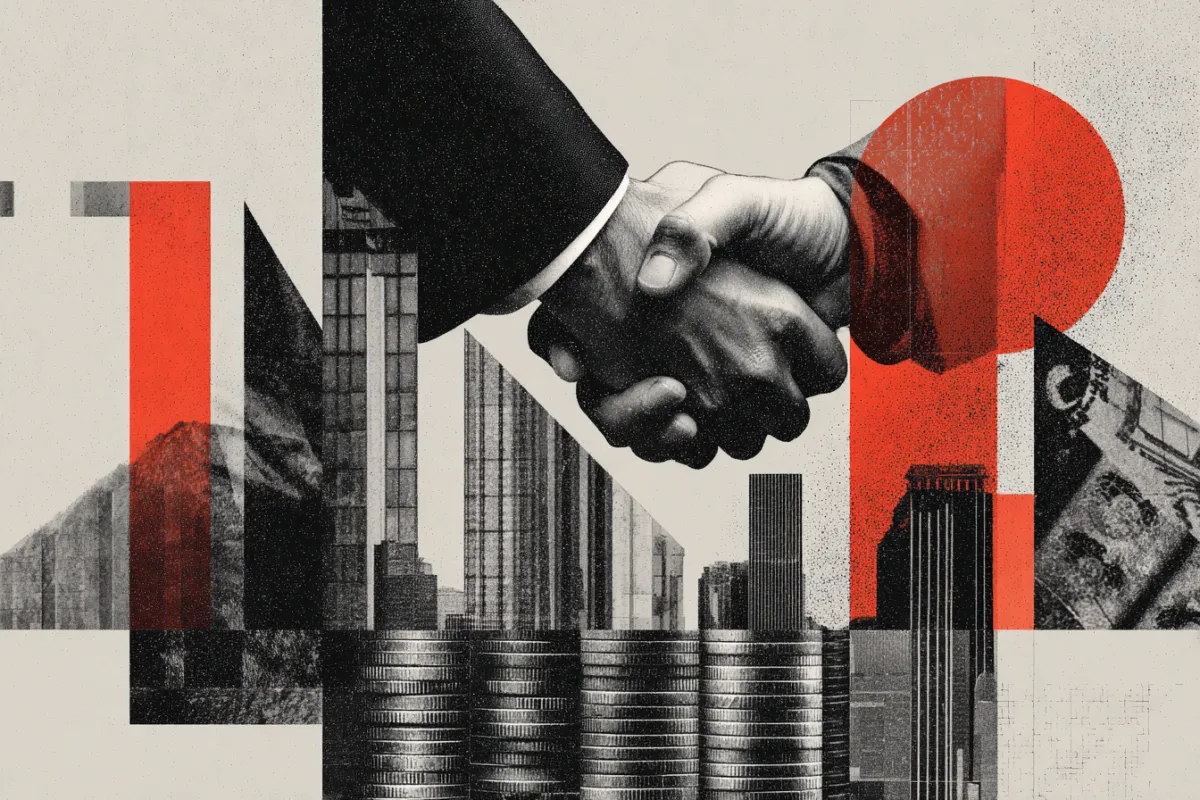Crypto Adoption Soars Despite Crackdown: Secret Service Intensifies Fight Against Digital Heists
Crypto's Wild West Era Ends? Not So Fast.
While regulators scramble to tame the blockchain frontier, adoption keeps skyrocketing—proving once again that money flows where governments can't follow. The Secret Service's latest cybercrime unit just declared war on crypto hackers, but the cat-and-mouse game is rigged in favor of the mice.
Bulletproof Security Meets Unstoppable Innovation
Federal agents are deploying quantum-level forensics to trace stolen NFTs and DeFi exploits. Meanwhile, pseudonymous devs are already testing privacy coins that make Monero look like a public ledger. The irony? Every high-profile takedown just fuels more creative coding—and more institutional FOMO.
Wall Street's Worst Nightmare: A Self-Regulating Economy
Bankers hate that crypto markets rebound faster post-hack than traditional finance recovers from a bad tweet. The lesson? Decentralization doesn't need bailouts—just better code. (Cue hedge funds quietly allocating more to cold storage.)
Final Thought: The harder they clamp down, the faster the space evolves. Regulation-proof networks aren't the future—they're already here.

The new US administration's push for cryptos as mainstream assets is leading the Secret Service to expand its global reach and educate the public about crypto scams.
This initiative goes beyond Core regulations and emphasizes the US government's effort to establish digital assets as mainstream investments.
The Global Investigative Operations Center (GIOC) of the US Secret Service employs advanced digital tools and a methodical approach to track and recover fraudulent cryptocurrency assets, successfully reclaiming nearly $400 million over the past ten years.
The TRUMP administration's use of GIOC to prevent scammers from painting cryptos as dark assets is yet another push toward this asset class.
The modus operandi of the scammers in the crypto space involves exploiting individuals through counterfeit cryptocurrency trading platforms. They present initial gains to entice additional funding, only to vanish soon after with a larger investment.
The GIOC offers specialized training to law enforcement officials across more than 60 countries, equipping them with the necessary skills to tackle digital crimes, Bloomberg reported. Additionally, it collaborates with industry partners to recover stolen funds and ensure that perpetrators are held accountable.
One example of scammers' modus operandi shows the deception being initiated with a communication, followed by a cordial interaction. A person unknown to the victim guided them to a cryptocurrency platform that seemed legitimate—featuring a polished interface, detailed graphs, and even a support team.
The initial deposit yielded a slight gain. And so did the subsequent one. Motivated by the situation, the individual contributed additional funds, even resorting to loans to maintain their involvement. Subsequently, the platform ceased all operations unexpectedly, and the account balance has vanished.
In this instance, investigators from the Secret Service identified the fraudulent activity by tracking the domain name associated with the counterfeit investment platform.
Through the utilization of open-source tools, they determined the registration date, the individual responsible for it, and the method of payment employed. A digital currency transaction directed them to an alternative wallet. A minor VPN malfunction resulted in the exposure of an IP address.
The resources utilized by GIOC consist of software, subpoenas, and spreadsheets, rather than badges or firearms.
Over the past decade, a combination of patience and advanced digital tools has enabled the GIOC to acquire nearly $400 million in digital assets, a figure that has not been disclosed before.
A solitary cold-storage wallet currently holds a significant portion of this treasure, making it one of the most valuable in existence.
Following its enforcement actions against digital currencies like Liberty Reserve and E-Gold in the 1990s, the agency renowned for safeguarding US presidents has evolved into one of the largest custodians of cryptocurrency globally.
What the GIOC does and is planning helps in understanding the current administration's love for cryptos.
While regulatory easing is a significant play, the administration's use of the Secret Service is an important development. Why is the US cracking down on the illegal use of digital assets?
The Secret Service now plays a crucial role in identifying, probing, and apprehending individuals who breach specific regulations concerning the misuse of the US financial system.
In recent years, the use of digital assets has increased significantly, enabling a wide range of criminal activities, including various fraud schemes and ransomware incidents.
The United States has taken a prominent role in establishing benchmarks for the regulation and oversight of digital assets, aligning with anti-money laundering and counter-terrorism financing protocols.
However, inadequate or absent enforcement of these standards in certain foreign jurisdictions poses considerable risks of illicit financing, adversely affecting both American citizens and our international allies.
For instance, individuals involved in transnational organized crime frequently utilize digital asset service providers in regions where international standards have not been adequately enforced to launder and convert their illegal gains into cash.
The continuous expansion of decentralized financial systems, peer-to-peer payment transactions, and hidden blockchain records introduces further risks for the American populace and our international allies.
When digital assets are misused for unlawful purposes, national interests need to implement measures that address these risks through law enforcement and other governmental actions.
The US Secret Service has stated it is dedicated to fulfilling its role in protecting the country from unlawful activities related to digital assets.
Elsewhere
Crypto Management Firm ReserveOne Goes Public via $1 Billion SPAC DealThe firm, inspired by proposed U.S. Strategic Bitcoin Reserve, secures backing from Blockchain.com, Kraken, Galaxy Digital, Pantera Capital, and other leading crypto institutions.![]()

![]()

![]()

![]()

![]()
Blockcast
This week, host Takatoshi Shibayama interviews Eric van Miltenberg, SVP of Strategic Initiatives at Ripple, discussing the APEX 2025 conference, Ripple's evolution from a payment-focused company to a broader financial solutions provider, and the future of the crypto industry.
They explore the similarities between the internet boom and the current blockchain landscape, the importance of regulatory clarity, and the potential of tokenization in various sectors. Eric shares insights on Ripple's strategic acquisitions and the company's commitment to addressing real-world problems through innovative technology.
Blockcast is hosted by Head of APAC at Ledger, Takatoshi Shibayama. Previous episodes of Blockcast can be found here, with guests like Davide Menegaldo (Neon EVM), Jeremy Tan (Singapore parliament candidate), Alex Ryvkin (Rho), Hassan Ahmed (Coinbase), Sota Watanabe (Startale), Nic Young (Oh), Jacob Phillips (Lombard), Chris Yu (SignalPlus), Kathy Zhu (Mezo), Jess Zeng (Mantle), Samar Sen (Talos), Jason Choi (Tangent), Lasanka Perera (Independent Reserve), Mark Rydon (Aethir), Luca Prosperi (M^0), Charles Hoskinson (Cardano), and Yat Siu (Animoca Brands) on our recent shows.
![]()
Blockhead is a media partner of Coinfest Asia 2025. Get 20% off tickets using the code at https://coinfest.asia/tickets.


